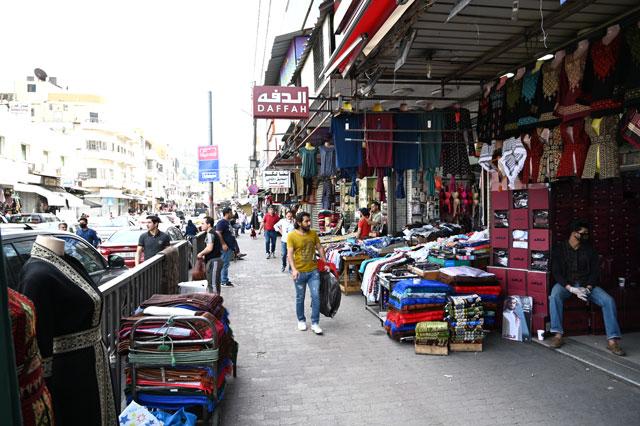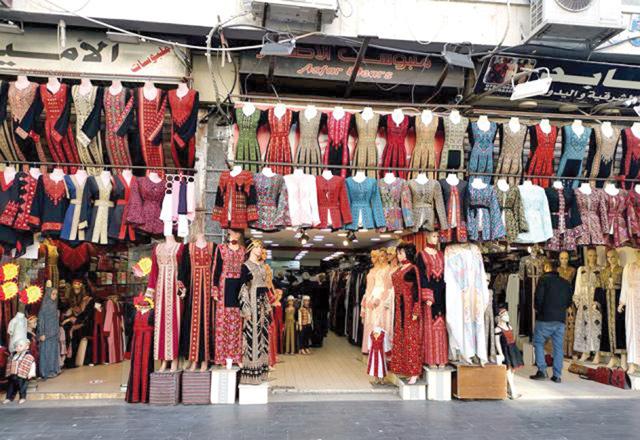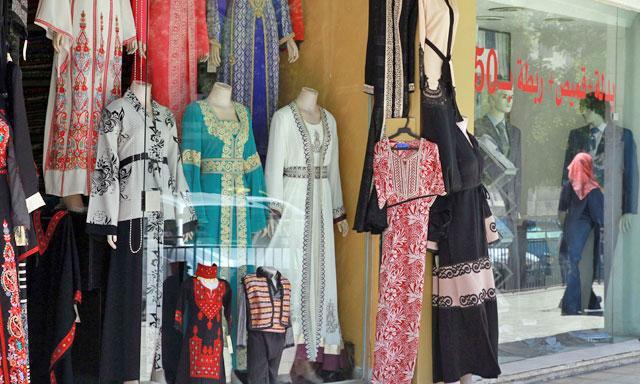You are here
Clothing, footwear sector banks on Eid sales
By Maram Kayed - Jul 26,2020 - Last updated at Jul 26,2020

Despite an increase in purchasing activity in the clothing and footwear sector, the current year’s records are below past years’ average, according to stakeholders (Photo by Amjad Ghsoun)
AMMAN — Despite an increase in purchasing activity in the clothing and footwear sector, the current year’s records are below past years’ average, according to stakeholders.
The clothing and footwear market has begun witnessing “an upturn in commercial movement with the approach of Eid Al Adha and the disbursement of salaries in various sectors”, according to Assad Qawasmih, a sector representative in the Amman Chamber of Commerce.
The prices this year were more than 20 per cent lower than last year, Qawasmih told The Jordan Times over the phone.
He pointed out the decline in the Kingdom’s imports of clothes and footwear since the beginning of the summer season, which reached 60 per cent amounting to JD34 million compared with JD85 million recorded in the same period last year.
The sector includes nearly 11,000 establishments distributed throughout the Kingdom and the salaries of the employees, numbering 55,000, amount to JD 21 million per month, according to Qawasmih.
“We hope the increased activity can help traders increase sales and compensate for the stagnation that the markets had witnessed during the last period,” said Qawasmih.
He also called for the “necessity of providing special incentives for the sector”, such as reducing the 15 per cent sales tax to 8 per cent and reviewing customs fees.
President of the Textile and Readymade Clothes Syndicate Munir Deyyeh told The Jordan Times over the phone that the “strong competition among clothing shop owners is for the benefit of citizens as offers and discounts amount to more than 80 per cent”.
“These discounts and offers are real and subject to the supervision of the relevant government agencies,” he added.
The merchants’ “need for liquidity to fulfill their obligations towards others and their need to cover operational costs, salaries and future shipment payments” is what Deyyeh attributed to the significant discounts.
Related Articles
AMMAN — There is currently a high demand to buy Eid Al Adha clothes and footwear, which is expected to grow in the coming days, according to
AMMAN — Jordan’s Textile and Readymade Clothes Syndicate President Munir Deyyeh on Tuesday called on the government to issue defence laws to
AMMAN — Imports of this year’s winter clothing and footwear dropped by JD10 million, going down to JD60 million compared with JD70 million d
















